 This year, 2025, marks the 80th anniversary of the first nuclear explosion in New Mexico and the subsequent nuclear annihilation of Hiroshima and Nagasaki by two US atomic bombs. And the nuclear threat continues with more than 12,000 nuclear weapons held by nine countries.
This year, 2025, marks the 80th anniversary of the first nuclear explosion in New Mexico and the subsequent nuclear annihilation of Hiroshima and Nagasaki by two US atomic bombs. And the nuclear threat continues with more than 12,000 nuclear weapons held by nine countries.
The 14th Rio de Janeiro Uranium Film Festival remembers this threat with exceptional films on atomic weapons and nuclear riscs. In addition it has something to commemorate. Last October it was honored as one of the “25 Coolest Film Festivals in the World 2024” by the prestigious MovieMaker Magazine in Hollywood. This year in March 2025, the festival founders, Márcia Gomes de Oliveira and Norbert Suchanek, received the Nuclear-Free Future Award (Education) in New York. This award honors the largely unsung heroes of the Nuclear Age who work to get rid the world of nuclear weapons and for a world without nuclear risks.
Free admission. Age rating 14 years.
May 17 SATURDAY - Opening
4:00 p.m.
The Time Machine
USA, 1960, Director George Pal, Screenplay David Duncan, H.G. Wells, 103 min, English. Subtitles in Portuguese.
6:10 p.m.
In Our Hands
Italy/United Kingdom, 2024, Director Camillo Sancisi, Animation, 5 min, English. Student project of the Aardman Academy United Kingdom. Subtitles in Portuguese.
The Man Who Saved The World
Denmark, 2014, Director: Peter Anthony, Producers: Jakob Staberg, Statement Film, Christian Ditlev Bruun, Co-production: WG Film and Stephen McEveety. Docu-Drama with Kevin Costner, Robert De Niro, Matt Damon, Stanislav Petrov, Sergey Shnyryov, u.a., 105 min. Russian, English. Subtitles in Portuguese.
May 18 SUNDAY
5:00 p.m.
In Exile
United States, 2023, Director Nathan Fitch, Documentary, 12 min, English/Marshallese. Subtitles in Portuguese.
The Polygon (Le Polygone, un secret d’État)
France, 2024, Director and Writer Cédric Picaud, Producer Vincent Gazaigne, Documentary, 53 min, French. Subtitles in Portuguese.
6:30 p.m.
The Nuclear Chronicles: Cultivated Aftermath
United States, 2024, Director and Producer Andrew Madl, Animation, 8 min, English. Subtitles in Portuguese.
Unless
Poland, 2025, Director Antonina Gotfrid, Animation, 6 min, English. Subtitles in Portuguese.
Address Unknown: Fukushima Now
Japan/Taiwan/United States/United Kingdom, 2024, Director Arif Khan, Documentary, 25 min, English/Japanese. Portuguese subtitles.
Half-Life
China, 2024, Director Chonghu Li, Fiction, 15 min, no dialogue. Student project Beijing Film Academy.
May 21 WEDNESDAY
6:30 p.m.
Nukemailing
Ukraine/Austria, Germany, United States, 2024, Director Pavlo Cherepin, Documentary, 52 min, English, French, German, Ukrainian. Portuguese subtitles.
Seven Years of Winter
Germany/Denmark/Ukraine, 2011/12, Director: Marcus Schwenzel | Producer: Hans Henrik Laier and Marcus Schwenzel, Fiction, With Hannes Jaenicke, Sasha Savenkov, Roman Knizka, Tatyana Nesvidomenko.
Original Language: Russian | Subtitles: English / Portuguese subtitles, 22 min.
22 May THURSDAY
2:30pm / School session
Atomic Cover-up
United States, 2021, Directors Greg Mitchell and Suzanne Mitchell, Documentary, 52 min, English. Subtitles in Portuguese.
6:30 p.m.
Object 817
Belgium, 2024, Director Olga Lucovnicova, Documentary, 21 min, Russian. English and Portuguese subtitles.
The Accelerator
United States, 2024, Director Wendy Garrett, Documentary, 56 min, English. Portuguese subtitles.
23 May FRIDAY
6:30 p.m.
Quoth the Raven, Nevermore
United States, 2025, Director Ari Beser and Regis Hirwa, Documentary, 6 min, English/Japanese. Portuguese subtitles.
The View from the Plane
Portugal/Italy, 2024, Director Daniele Grosso, Animation, Experimental Documentary, 6 min, English. Subtitles in Portuguese.
Nagasaki Journey (Digitally Restored Version)
Japan/USA, 1995/2025, Directors & Producers: Chris Beaver & Judy Irving, Digital Restoration: Gary Coates, Documentary, 30 min, English/Japanese. Subtitles in Portuguese.
Appreciation - A Survivor´s Story of Hiroshima
USA, 2023, Directors: Michael Dwyer, Chuck Gomez, Producer: Michael Dwyer, Documentary, English, 20 min. Subtitles in Portuguese.
Tempest: Peter Roche and the Nuclear Uncanny
New Zealand, 2024, Director Bridget Sutherland, Documentary/Experimental, 9 min, English. Subtitles in Portuguese.
May 24, SATURDAY
6:00 p.m.
The Conqueror: Hollywood Fallout
United Kingdom/United States, 2023, Director William Nunez, Documentary, 116 min. Subtitles in Portuguese.
May 25 SUNDAY
5pm
Blowing in the Wind
New Zealand/Guam, 2024, Director Fiona Amundsen, Documentary/Experimental, 15 min, English. Subtitles in Portuguese.
Sand Storm. The Sahara of the nuclear tests
France / Algeria, 2010, Director Larbi Benchiha, Producer Farid Rezkallah, Documentary, 56 min, French/English. Subtitles in Portuguese.
6:30 pm
Half-Life of Memory: America's Forgotten Atomic Bomb Factory
United States, 2024, Director Jeff Gipe, Documentary, 55 min, English. Subtitles in Portuguese.
28 May WEDNESDAY
6:30 pm
We Live Here
Kazakhstan, 2025, Director Zhanana Kurmasheva, Documentary, 80 min, Kazakh and Russian. Subtitles in Portuguese.
May 29 THURSDAY
2pm
Presentation of the Technical Course in Dance at ETEAB FAETEC (80 years since the bombs dropped on Japan)
2:30pm / School session
Nagasaki Journey (Digitally Restored Version)
Japan/USA, 1995/2025, Directors & Producers: Chris Beaver & Judy Irving, Digital Restoration: Gary Coates, Documentary, 30 min, English/Japanese. Subtitles in Portuguese.
6:30 pm
Dr. Strangelove or: how I learned to stop worrying and love the bomb (Dr. Fantástico)
United Kingdom/USA, 1964, Directed by Stanley Kubrick, Cast Peter Sellers, fiction, 93 min, English, Subtitles in Portuguese.
May 30 FRIDAY
6:30 pm
Ways of Knowing: A Navajo Nuclear History
United States, 2025, Director Kayla Briët, Documentary, 23 min, English. Subtitles in Portuguese.
Demon Mineral
United States, 2023, Director Hadley Austin, Producer Nevo Shinaar, Camera Yoni Goldstein, Impact Producer Emma Robbins, Co-Writer Tommy Rock, Documentary, 95 min, English and Navajo. Subtitles in Portuguese.
31 May SATURDAY
3 pm Red Carpet
4 pm
Decommissioning a Dream
United Kingdom, 2024, Directors Laurie Griffiths and Jonty Tacon, Documentary, 25 min, English/Russian. Subtitles in Portuguese.
Taiwaste (Taiwan's nuclear waste)
Germany/Taiwan, 2022, Director Patrik Thomas, Documentary/Experimental, 25 min, Chinese. Subtitles in English and Portuguese.
5:30 pm
The Atomic Bowl: Football at Ground Zero - and Nuclear Peril Today
United States, 2025, Director Greg Mitchell, Documentary, 52 min, English. Subtitles in Portuguese.
7 pm
Awards Ceremony
Afterwards, a party with music & magnificent caipirinha kindly prepared by Armazém São Thiago.
Rating 18 years. If you drink, don't drive.
ABOUT THE FILMS (ALPHABETICAL)
Taiwan/Japan/USA/UK - Director: Arif Khan, Producer: Estela Valdivieso Chen, Adam Cullen Young, Jamie Lin, Keisuke Sekino, VR, Documentary, English, Japanese, 25 min. Subtitles in Portuguese.
Fukushima Now is an immersive VR documentary that takes audiences to the heart of Fukushima to meet the survivors living in the shadow of the crisis today. Using volumetric capture & photogrammetry technology, the project transports viewers into an experience that explores the disaster and the lasting impact it's had on communities and the environment. We reveal how a community endures in the aftermath of trauma and recalls memories of homes they can longer return to. Through local voices, the experience also examines the meaning of home and how it may be redefined in the face of disaster. Website:
https://serendipity.com.tw/address-unknown-2/

USA, 2022, Directors: Michael Dwyer, Chuck Gomez, Producer: Michael Dwyer, Documentary, English, 20 min. Subtitles in Portuguese.
Tomiko Morimoto West watched from her schoolyard as a low-flying B-29 dropped the first atomic bomb on Hiroshima on August 6, 1945, killing her mother and other family members. Thirteen-year-old Tomiko searched the devastated city for the body of her grandfather to save him the injustice of a mass burial, cremating him under mountain tree branches. She went on to marry an American GI, become a professor at Vassar College, and at age 90 has only one wish: that world leaders work together for global peace.
Michael Dwyer studied film at Bard College and SUNY Purchase. He works by day as a graphic designer but his heart is tied to art with a mission and social cause behind it.

USA, 2021, Director: Greg Mitchell, Co-Producers:
Greg Mitchell and Suzanne Mitchell, Documentary, 52 min, English, Portuguese subtitles.
The widely-acclaimed 2021 film Atomic Cover-up is the first documentary to explore the bombings of Hiroshima and Nagasaki in 1945 from the unique perspective, words and startling images of the brave cameramen and directors who risked their lives filming in the irradiated aftermath. It reveals how this historic footage, created by a Japanese newsreel crew and then an elite U.S. Army team (who shot the only color reels), was seized, classified top secret, and then buried by American officials for decades to hide the full human costs of the bombings as a dangerous nuclear arms race raged. All the while, the producers of the footage made heroic efforts to find and expose their shocking film, to reveal truths of the atomic bombings that might halt nuclear proliferation. Atomic Cover-up represents, at least in part, the film they were not allowed to make, as well as a tribute to documentarians everywhere.
New Zealand, 2024, Director / Producer: Fiona Amundsen, Producer: Sylvia Frain, Documentary, English, 15 min. Subtitles in Portuguese.
'Blowing in the Wind' explores present-day activist efforts to amend the ‘Radiation Exposure Compensation Act’ to include Guåhan (Guam) as a jurisdiction of ‘downwinders’ resulting from American nuclear testing in the Marshall Islands. The film’s primary focus is military veteran Robert Celestial who founded and fronts the Pacific Association of Radiation Survivors group based in Guåhan. This group are the primary activists advocating for Guåhan’s recognition as a ‘downwinder’ since 2004. Celestial—who is present via only his voice and the sense of an unfolding back and forth conversation—takes viewers on a journey that covers his participation in building the Runit Dome, disbelief, fighting for retribution and hope. The film uses present-day filming and archival footage. The latter includes material from an informational Civil Defence film on the dangers of radioactive fallout; along with footage from two United States Atomic Energy Commission and University of Washington (Laboratory of Radiation Biology) research trips to Bikini, as well as US Air Force documentation of Marshall Islands testing. The footage functions to corroborate the experiences that Celestial speaks of while also alluding to how scientific knowledge was privileged over human life. The present-day filming includes abstract imagery of chemiluminescence (a scientific process used in DNA testing) and flashing lights. This imagery creates a kind of embodied reflective contemplation, and is also suggestive of the invisible poisoning that is ionizing radiation. It also privileges opacity and invisibility meaning the visuality is not necessarily obviously ‘nuclear’. As such, this film’s central focus concerns questioning how to socio-ethically image and bear witness to the realities of what it means to live on lands and oceans contaminated by nuclear fallout. There is a focus on transgenerational justice concerning the history of US nuclear testing in the Pacific and the ongoing quest for nuclear atonement. Website:
http://fionaamundsen.com/works/blowing-in-the-wind/

UK, 2024, Directed, edited and produced by Laurie Griffiths and Jonty Tacon, Original Music Score Luke Thomas, Academic Advisor Leila Dawney, Documentary, English, 25 min. Subtitles in Portuguese.
Set in the remote Lithuanian border town of Visaginas – a former Soviet town that is defined by its founding purpose of housing the workers and builders of what was once one of the world’s most powerful nuclear power stations. The Ignalina Nuclear Power Plant secured an energy independence for Lithuania but the prospect of a former-Soviet nuclear power plant that shared the same RBMK design as Chernobyl operating in Europe, proved unpalatable for Brussels and its decommissioning became a central condition of Lithuania’s acceptance into the European Union. With unprecedented access to the deeply-guarded inner sanctum of the power station itself, the impact of the plant’s closure on the largely Russian-speaking people of Visaginas is shared by the first generation to emerge from the town. Their first-hand view on how rapid change impacts a community that was bound by the shared purpose of building a more certain future, provides a powerful and touching insight into what is involved, both financially and in terms of human endeavour, on a vital aspect of nuclear power that is often overlooked and over-simplified – especially pertinent at a time when nuclear power is becoming an increasingly relevant component in the global energy mix. Website:
https://www.griffithstacon.com
USA, 2023, Director: Hadley Austin, Producer: Nevo Shinaar. Cinematographer: Yoni Goldstein, Impact Producer: Emma Robbins, Co-Writer: Tommy Rock, Documentary, 95 min, English, Navajo, Portuguese Subtitles
DEMON MINERAL is a documentary about life in the radioactive desert of the Navajo Reservation in the American Southwest. Spanning a landscape perforated by uranium mines, the film follows a group of indigenous scientists, engineers, and activists as they work to secure a vital living space in the Navajo Nation. It is an anti-Western exploring the legacy of uranium mining in Diné Bikeyah, the sacred homelands of the Navajo. There, 523 unremediated mines scatter across an area the size of West Virginia. Water, air, traditions, and livelihoods have been threatened by contamination for the last four generations. Some Diné adhere to the tenets in the following origin story: there is a demon who lives in the earth. He is content enough there, and will bother no-one unless disturbed, having been laid there by a formidable warrior. Uranium, for millions of years to come, is perhaps this demon made real.
Hadley Austin is a writer, filmmaker, photographer, researcher, and producer. She is, alongside Yoni Goldstein, one half of Formidable Entities. Hadley’s work as a writer, documentarian, and artist is rooted in historical research, social justice, and the natural world. Everything from dogsled races to dance performances.
United Kingdom/USA, 1964, Directed by Stanley Kubrick, Cast Peter Sellers, fiction, 93 min, English, Subtitles in Portuguese.
Dr. Strangelove parodies Cold War fears of a nuclear warbetween the United States and the Soviet Union and stars George C. Scott, Sterling Hayden, Keenan Wynn, Slim Pickens, and Tracy Reed. The story concerns an insane brigadier general of the United States Air Force who orders a pre-emptive nuclear attack on the Soviet Union. It follows the President of the United States (Sellers), his scientific advisor Dr. Strangelove (Sellers), the Joint Chiefs of Staff, and a Royal Air Force exchange officer (Sellers) as they attempt to stop the crew of a B-52 from bombing the Soviet Union and starting a nuclear war.
The film is considered one of the best comedy films and one of the greatest films of all time. In 1998, the American Film Institute ranked it 26th in its list of the best American films(in the 2007 edition, the film ranked 39th), and in 2000, it was listed as number three on its list of the funniest American films. In 1989, the United States Library of Congress included Dr. Strangelove as one of the first 25 films selected for preservation in the National Film Registryfor being "culturally, historically, or aesthetically significant".[7][8] The film received four Academy Awardnominations, including Best Picture, Best Director, Best Adapted Screenplay, and Best Actor for Sellers. The film was also nominated for seven BAFTA Film Awards, winning Best Film From Any Source, Best British Film, and Best Art Direction (Black and White), and it also won the Hugo Award for Best Dramatic Presentation.

Half-Life
China, 2024, Director: Chonghu Li, Fiction, Chinese, 15 min. Subtitles in Portuguese.
In Japan, August 2023, countless harmful substances are discharged into the sea along with nuclear contaminated water. A power plant worker involved in the discharge process frequently faces ostracism and violent harassment from those around him. Unable to bear the humiliation any longer, he decides to end it all at home. However, when he wakes up from his dream, he realizes that he is actually a government employee. Everything that had happened seemed like just a dream. Due to the irresponsible discharge actions by the local authorities, a tidal wave of public opinion has manifested as piles of complaints and protest materials. He is forced to work overtime to "handle" this public opinion and has been working continuously for several days. Just as he finishes "handling" the last complaint and is about to go home, an unexpected event occurs.
USA, 2024, Director: Jeff Gipe, Producer: Dan de Jesus, Documentary, 55 min. Subtitles in Portuguese.
In the suburbs of Denver, the U.S. secretly manufactured thousands of atomic weapons, leaving behind a toxic legacy that will persist for generations. The Rocky Flats plant produced a staggering 70,000 atomic bombs, each serving as a “trigger” for thermonuclear warheads. Concealed by government secrecy, the plant's fires, leaks, and illicit dumping of nuclear waste contaminated the Denver area with long-lived radioactive toxins. A major—and highly visible—plutonium fire sparked a decade of mass protests, culminating in an unprecedented FBI raid that ultimately shuttered the plant. Today, the radioactive legacy of Rocky Flats continues to threaten public health, yet surprisingly few people are aware the plant ever existed. Through powerful testimonials and extraordinary archival media, Half-Life of Memory exposes Rocky Flats' dark past and enduring impact, prompting critical reflection on the implications of the nation’s renewed nuclear weapons buildup and ongoing construction of a new "trigger" factory. Website:
https://halflifeofmemory.com/
USA, 2023, Director: Nathan Fitch, Producer: Angela Edward, Documentary, English, 12 min. Subtitles in Portuguese.
In Exile is a short film that explores the US nuclear legacy in the Pacific through the lens of members of the Marshallese community in Arkansas. The Marshallese were told their islands in Micronesia were essential for the good of mankind for Operation Crossroads, a series of nuclear tests in Bikini Atoll commencing in 1946. In a highly choreographed scene photographed by an array of military cameras, the Marshallese begin the process of leaving their home islands for an exile that has now lasted 77 years. They could not know that their islands would be vaporized, their waters poisoned, and their bodies used as test subjects by the US government. In Exile encapsulates this complex history in the scene of a Nuclear Remembrance Day event. Every year the Marshallese revisit this traumatic event in an emotional scene that encompasses an often overlooked part of American history.
Nathan Fitch is a filmmaker and Assistant Professor at The New School University. A member of the Brooklyn Filmmakers Collective, Nathan’s award winning films have been published by The New York Times Op Docs, TIME magazine, The New Yorker, PBS and NPR, to name a few.
Italy, 2024, Director: Camillo Sancisi, Animation, English, 5 min, Subtitles in Portuguese.
In 1983, a Lieutenant in command at an early warning base receives an alarm from the satellite defense system. Five nuclear warheads are directed towards his territory. The attack is unexpected, but the data appears reliable. The protocol is clear: should he initiate a deadly retaliation? Based on a true story.
In Our Hands" is a short film about the fragility of life. The unbelievable true story of Stanislav Petrov teaches us that we possess the ability to create unimaginable wonders and horrors. However, we are merely delicate beings in the face of the vast emptiness just beyond our reach. I find this concept fascinating, and I believe it holds great relevance in today's world. Website:
https://www.camillosancisi.com/
Japan/USA, 1995/2025, Directors & Producers: Chris Beaver & Judy Irving, Digital Restoration: Gary Coates, Documentary, English/Japanese, 30 min. Subtitles in Portuguese.
Produced by Emmy Award-winning filmmakers, Nagasaki Journey is a powerful, yet hopeful look at the immediate and continuing aftermath of the atomic bomb dropped August 9, 1945 on Nagasaki, Japan.
The film tells the moving personal stories of two Japanese survivors and a U.S. Marine, who was one of the first American troops to occupy the city after the war ended. All three dramatically reveal how the impact of this single bomb forever transformed their lives and their thinking. Despite the enormous wartime tragedy, their common humanity transcended previous hatreds, providing hope the Nagasaki bomb would be the last atomic weapon ever dropped in warfare.
The primary collaborators on the project were Shogo Yamahata, Rupert Jenkins, Maya Ishiwata, Michael Levin and Hannah Koopmann. Website: cbfilms.net/portfolio-item/nagasaki-journey/
Ukraine, Germany, 2024, Director: Pavlo Cherepin, Producer: Egor Olesov, Antje Boehmert, Katerina Mizina, Documentary, English, French, German, Ukrainian, 52 min. Subtitles in Portuguese.
The documentary follows three employees of Ukrainian nuclear power plants and tells of the consequences of the Russian occupation. Of fear, illegal interrogations and torture. For IAEA chief Rafael Grossi, the conditions under which the staff have to work are the biggest cause for concern. Working on the film evoked personal memories for director Pavlo Cherepin, who learned the word evacuation early on as a child after the Chornobyl reactor accident.
Pavlo Cherepin is a journalist, producer, documentary filmmaker and content creator with over 20 years of experience in the industry. He is known for his military and sports documentaries, reality shows and interactive educational films.
Belgium, 2024, Director Olga Lucovnicova, Documentary, 21 min, Russian with English & Portuguese subtitles.
A poetic journey into the most clandestine area of Russia, where the discovery of an alien unveils a deadly secret kept for decades, silently claiming the lives of local residents and causing mutations in their bodies from generation to generation.
Olga Lucovnicova (Moldova, 1991) is an award-winning documentary filmmaker and researcher in the field of audiovisual arts, currently based in Belgium. She is a winner of the Golden Bear at the 71st Berlin International Film Festival, the 35th European Film Academy Awards, and many others. As a filmmaker, Olga is particularly interested in stories that can generate social change and create a platform for discussion.
“The Flemish Competition Documentary award goes to an innovative, enigmatic and politically charged film that, through a very well achieved blend of archives, new and old footage from various sources, creates a standout cinematographic object that intertwines investigation, facts, speculation and haunting images, introducing a peculiar and paranormal tale to reveal a much larger secret. The award goes to Object 817, by Olga Lucovnicova.” Jury Statement Leuven Kort / Website:
https://www.whilewerehere.be/films/object-817
USA, 2025, Directors:
Ari Beser, Regis Hirwa, Documentary, English, Japanese, 8 min. Subtitles in Portuguese.
Ari Beser is the Grandson of Jacob Beser, the only man to fly aboard both planes that dropped the atomic bombs over Hiroshima and Nagasaki. Ari reflects on the justification of his grandfather's mission as he begins to write his latest piece for the Japanese Asahi Shimbun (A New York Times affiliate). What does he really think about the mission many say ended the war?
Ari Beser is the Founder and lead Filmmaker of Goss Grove Films–A global first storytelling incubator focusing on next generation filmmakers. Ari Beser is based in Kigali, Rwanda producing and co-directing a documentary feature about young people coming of age in a post genocide society who are writing an entirely new story. He has spent over 10 years working with atomic bomb survivors to inherit and convey their testimonies. Website:
http://www.aribeserphotography.com
France / Algeria, 2009, Director Larbi Benchiha, Producer Farid Rezkallah, Documentary, French/English 56 minutes. Subtitles in Portuguese.
In 1960, in the north of Algeria, war was rampant. But 2000 kms from the battlefield, another project was emerging from within the sands of the Sahara. In the eyes of General De Gaulle, this project was to be more important than the war itself. In the Hoggar, officers and scientists installed the first French centre of nuclear experimentation. Apart from these scientists and military men whose careers had already reached a peak, a contingent of soldiers and the local population were also asked to contribute to the realisation of this gigantic project. On the 13th of February, 1961, at 07h04, France entered the privileged club of nuclear powers in the world.
This film narrates a history that existed and that even today, continues to affect the daily lives of families both in France and in Algeria. It is also a great ambition to allow soldiers of the contingents, the military officers and the Touareg nomads to say the untellable. To make them travel back in time through facts and recollections, through dreams and lies, feelings and reflections, but each in their own way, according to their personal experiences. They describe what they lived and saw in their words, with the help of their memories which have survived and resisted through time and erosion. Their photos, films, souvenirs and lives in the Sahara are elements that helped to take a look at their past, which is also ours. They help us to analyse and rewrite it.
Webisite: larbi.benchiha.chez.com
Germany/Denmark/Ukraine, 2011/12, Director:
Marcus Schwenzel, Producer: Hans Henrik Laier and Marcus Schwenzel, Fiction, With Hannes Jaenicke, Sasha Savenkov, Roman Knizka, Tatyana Nesvidomenko. 22 min, Language: Russian, Subtitles: Portuguese.
Seven-year-old Andrej scavenges the nuclear wasteland of Chernobyl for discarded documents to trade on the black market. Shot entirely on location, this is a haunting rumination on the heartbreaking effects of the political on the personal. Schwenzel’s film starts off as a straightforward narrative but once Andrej enters the radiated Chernobyl, the film soon turns into a location showcase of the desolate environment. Because the setting is so unforgettable and the cinematography is captured so excellently, we never have a problem with this change. Sasha Savenkov puts forth a fascinating one-man (or in this case, one-little boy) performance that will certainly have moviegoers looking out to see where his acting career goes from here. The technical feats trump the story, which the film is light on.
Germany / Taiwan, 2022, Director: Patrik Thomas, Producer: The Random Collective, Arthouse Docu-Fiction, Chinese, 25 min.Subtitles in Portuguese.
As one of the many nuclear powered countries, Taiwan is constantly facing the issue on how to deal with its nuclear waste. After decades of controversial governmental decisions, a new solution seems possible: a citizen-powered decentralized storage strategy. In the late 1970s, Taiwans government decided to store parts of its nuclear waste on Orchid Island, 65km off Taiwan’s southeast coast, home of the Yami people who lived for centuries as an isolated tribe. Being tricked by the government, the tribal chief signed a contract to built a “fish cannery“, which turned out to be a nuclear waste storage site. After more than 30 years of protest by the yami people, the government passes a new decision to solve to problem of Orchid Island with a new decentralised storage strategy. The film accompanies two governmental employees with their daily struggle of redistributing the nuclear waste to all Taiwanese citizens.
Patrik Thomas is a German/Portuguese artist and filmmaker. His work explores hybrid forms of cinema, video art and performance, often with the principal of a collaborative work approach. He addresses questions of everyday reality, work processes, memories and technology. He holds a BA in filmmaking/new media and has a long work experience in computer science. Since 2012 he is enrolled at the academy of fine arts Munich with Julian Rosefeldt, Olaf Nicolai and Klaus vom Bruch, focussing on time based media, conceptual art and sculpture. Website:
https://patrikthomas.de
New Zealand, 2024, Director and Producer:
Bridget Sutherland, Documentary, English, 9 min. Subtitles in Portuguese.
How many artists question technology, especially military technology? ‘Tempest’ is named for the nuclear industrial storm imagined inside the concrete silo where the NZ artist Peter Roche staged his final installation ‘Asylum’, a daring collection of works that speak to the nuclear uncanny and the dangers underscoring our new radioactive world. This invasion of the military into our lives provides the context for much of Peter’s work, spanning his performances from the 1970’s through to his later light and kinetic sculptures. However, it was not until ‘Asylum’, 2016, Peter’s final public installation in an abandoned concrete silo, that he confronted the nuclear threat head on. Commanding works with titles such as Meltdown, Flotilla and Tempest underscore the dangers of nuclear military technology and the vulnerability of a culture so entangled in its manufacture and the global reach of its destructive toxic legacy. ‘Tempest’ is dedicated to the International Campaign to Abolish Nuclear Weapons. Website:
https://www.eit.ac.nz/staff/bridget-sutherland/
Bridget Sutherland is a writer on art, a painter and filmmaker: "The threat posed by nuclear war and its industrial arm, the nuclear power plant, creates new forms of fear and psychic anxiety. In making ‘Tempest’, I was concerned to highlight a number of seminal works by the artist Peter Roche that speak to the underlying dangers of the Nuclear age and its psychological impact. Peter is little known outside of New Zealand and yet his vision is universal and reflects on the growing urgency to end the hold of nuclear and military consciousness on the planet."
USA, 2024, Director: Wendy Garrett, Executive Producer: David Raubach, Producer: Matt Payne, Line Producer: Tanya Ruby, Documentary, English, 56 min. Subtitles in Portuguese.
In 1942, the United States launched the Manhattan Project to develop the first atomic bomb, with Dr. Robert Wilson among its brilliant scientists. Disillusioned by the destruction, he later pioneered Proton Therapy in 1946, a groundbreaking cancer treatment used worldwide today. The Accelerator examines the remarkable career of Dr. Robert Wilson, the youngest and a vital member of the Manhattan Project. As one of Oppenheimer's key partners, Wilson's intellect was instrumental to the project's success, yet his pacifist beliefs and the moral struggles he endured regarding the use of atomic power remained largely unspoken. Utilizing archival footage and in-depth interviews, this documentary brings to light the complexities of Wilson's moral journey and emphasizes the human toll of one of history's most groundbreaking scientific endeavors. Website:
https://theacceleratorfilm.com
Wendy Garrett currently lives in Tulsa, Oklahoma where she is writing and producing fiction and nonfiction films. Her current projects include directing “The Accelerator” a documentary on a physicist from the Manhattan Project. She also produced a documentary “Eddie, the cost of greatness”, on basketball legend Coach Eddie Sutton that aired on ESPN and ABC and is being distributed by Lionsgate. Summer 2015, she worked with Francis Ford Coppola as his Associate Director in his live cinema project, “Distant Vision”. Wendy is a member of Women in Film.
USA, 2025, Director
Greg Mitchell, Documentary, English. Subtitles in Portuguese. 52 min.
There have been numerous films on The Bomb, even one or two about Nagasaki, but “The Atomic Bowl: Football at Ground Zero — and Nuclear Peril Today” is unique, and with many lessons and warnings for today–as nuclear dangers proliferate and civilian casualties in wars climb even higher. This football showdown featured college and pro stars, on January 1, 1946, and in (of all places) Nagasaki, near ground zero for the second atomic bomb, which killed over 80,000 just a few weeks earlier. The film, narrated by Peter Coyote, is not only the first full first-hand account of the game, but a provocative and disturbing story of the decision to drop a second atomic bomb just three days after Hiroshima–and the dangerous message to today’s leaders. Nearly all of the victims of the “forgotten bomb” were women and children and other civilians.
This important film, which includes rare footage and dozens of never published photographs, then offers a convincing argument about the relevance of Nagasaki today as mass civilian casualties in wars surge and nuclear dangers by all estimates grow every year. Website: https://gregmitchphoto.com/atomicbowl/
United Kingdom/ United States, 2023, Director William Nunez, Douglas Waller, Elizabeth Fowler, Documentary, 116 min. Subtitles in Portuguese.
A feature documentary that deals with the making of the ill fated movie "The Conqueror“ and the effects it had on the cast and crew of the film shooting 135 downwind of the atomic test site in Nevada. It is narrated by Academy Award nominee Sophie Okonedo. Hollywood is littered with bad movies. The Conqueror is one of the worst in a crowded field of terrible films. John Wayne stars as Genghis Khan and things only get worse from there. While it suffers from a host of racist and sexist issues and more quality issues-the reason it is still discussed today is because nearly half the cast and crew contracted cancer. This is a story of government lies, careless production decisions, and the most powerful weapon ever created by humankind. William Nunez is an award-winning director based out New York and Spain. Mr. Nunez is a principal at North End Pictures, the production company that has produced much of his work.

USA, 2024, Director and Producer: Andrew Madl, Animation, Engllish, 8 min. Subtitles in Portuguese.
The Nuclear Chronicles: Cultivated Aftermath, is an animated short film that presents a series of sequences depicting a blend of story and history from the landscapes that marked the beginning of the Nuclear Age. Situated in an era rife with technological advancements pressured by geopolitical agendas, the relationship between humans and landscape becomes even more entangled and strained. The film follows the story of the McDonald Ranch in New Mexico, USA. The assembly of the active components of the world’s first nuclear bomb was carried out in the ranch house, while the Gadget bomb was detonated on the ranch land as part of the Trinity nuclear test. Set in an alternative reality that tries to navigate fact and fiction, the film is a story of the intersection of military technology with the landscape and its inhabitants.
Denmark, 2014, Director: Peter Anthony, Producers: Jakob Staberg, Statement Film, Christian Ditlev Bruun, Co-production: WG Film and Stephen McEveety. Docu-Drama with Kevin Costner, Robert De Niro, Matt Damon, Stanislav Petrov, Sergey Shnyryov, u.a., 105 min. Russian, English. Subtitles in Portuguese.
www.themanwhosavedtheworldmovie.com
In the year 1983. The Cold War is seconds from exploding. The world holds its breath as the superpowers USA and Russia are arming themselves against each other with thousands of nuclear missiles. On the 26th of September, Russian radars intercept five nuclear missiles on their way to Russia. Stanislav Petrov is commander-in-chief. The decision that would start World War III rests on his shoulders. Should Russia fire nuclear missiles at the United States in defence? 'The Man Who Saved the World' is an epic Cold War thriller that sends shivers down your spine, while also being a gripping story about the man who actually saved the world, and his struggle to get his life back on track before it is too late. Peter Anthony is a Danish director, screenwriter, set designer, architect and graphic designer. Graduating from The Royal Academy of Fine Arts in Copenhagen (1999) with a bachelor's degree in architecture from École Nationale Supérieure des Beaux-Arts in Paris (1996). The Man Who Saved the World is Anthony's international debut as a feature-length film director. In addition to serving as the film's director, Anthony also contributed as a scriptwriter, co-editor, set design consultant and graphic designer.
Kevin Costner: “I often get the chance to play a hero. But Stanislav is a true real-life hero. Few people know about Stanislav Petrov. But hundreds of millions of people are alive because of him."

France, 2023, Director: Cédric Picaud, Producer: Vincent Gazaigne, Documentary, French / English, 53 minutes. Subtitles in Portuguese.
In the desert plain of the North-East, Damien wants to save his village from a spell. In 1957, France settled secretly the Polygon in the forbidden hills to test nuclear bomb detonation systems using hazardous materials. Top engineers from Paris created and ruled the site. Local workers built, maintained, secured it and were kept silent. Ten years after the Polygon’s closure, Damien wants to know how much the Polygon has polluted environment and poisoned minds.
USA, 1960, Director George Pal, Screenplay David Duncan, H.G. Wells, 103 min, English. Subtitles in Portuguese.
Atomic Bomb Predicted Before It's Time: The Time Machine (also marketed as H. G. Wells' The Time Machine) is a 1960 American period post-apocalyptic science fiction film based on the 1895 published book by H. G. Wells. The story is set in Victorian England and follows an inventor who constructs a machine that enables him to travel into the distant future - after an atomic war. Once there, he discovers that mankind's descendants have divided into two species, the passive, childlike, and vegetarian Eloi and the underground-dwelling Morlocks, who feed on the Eloi. The film received the Academy Award for Best Special Effects for its time-lapse photographic effects, which show the world changing rapidly as the time traveler journeys into the future.
Italy / Portugal, 2024, Director: Daniele Grosso, Animation, English, 6 min. Subtitles in Portuguese.
On the 24th of June, 1958 the philosopher and anti-nuclear activist Günther Anders was flying to Japan to take part in the Fourth World Conference Against Atomic and Hydrogen Bombs and for Disarmament. He recollected this experience in his book "The Man on the Bridge: Diary from Hiroshima and Nagasaki“. Trailer:
https://vimeo.com/903004229
Daniele Grosso is an Italian filmmaker based in Lisbon. He works mainly in documentary, focusing on social, historical and environmental themes but he also directed several experimental short films. He holds a Master Degree in Arts and Literature, with a thesis in History of Cinema Animation, and a Master Course in Video Post-Production.
Ukraine/Poland, 2025, Director: Antonina Gotfrid, Animator and Writer: Anna Kazantseva, Animation, English, 6 min. Subtitles in Portuguese.
UNLESS is a short animated film that explores the complex relationship between humanity and nature through the lens of post-irony. The film takes viewers on a journey through the ages – from the moment humans diverged from the animal kingdom to the technological era, where humans have become slaves to consumption, ignoring the consequences of their actions. On a narrative level, the story revolves around symbolic figures of the Father and the Son, situated in a metaphorical shooting range. Their target is the planet Earth. The Father, representing the current generation, exploits Earth's resources recklessly and greedily in pursuit of wealth. Meanwhile, the Son, symbolising future generations, undergoes a process of reverse evolution, gradually regressing to the state of a primate. The climax comes when the Father, recognising the Son’s transformation, tries for the first time to connect with him. However, it is too late: the Son, driven not by human reason but by primal instinct, attacks the Father. In the heat of their struggle, a nuclear button is accidentally pressed, triggering a new global catastrophe.
The final scene reveals a post-apocalyptic landscape: scarred but resilient, nature begins to recover once again. The cycle repeats itself – a primate attempts to stand upright. But this time, all living creatures on the planet unite to prevent it. Despite resistance, evolution finds its way forward, giving rise to a new form of intelligent life with a chance to build a civilisation.
Website: new.express.adobe.com/webpage/5kEyLUilC7RTF

USA, 2025, Director: Kayla Briët, Producer: Adriel Luis, Sunny Dooley, Lovely Umayam, Writer: Lovely Umayam,
Documentary, English, 23 min. Subtitles in Portuguese.
The American Southwest is a sprawling, mysterious landscape that holds a dark legacy as the setting for the production of the first nuclear bomb. But this place holds a deeper and more profound history – for millennia, Navajo and other Indigenous peoples have held this area sacred, and continue to fight for the survival of their land and culture despite decades of environmental and community trauma. Here, storytellers, scholars, artists, and community organizers have dedicated their lives to a future that transcends the shadow of nuclear history. This is their story. Website:
https://www.waysofknowing.us
 We Live Here
We Live Here
Kazakhstan, 2024, Director: Zhanana Kurmasheva, Producer: Banu Ramazanova, Documentary, Kazakh, Russian, 80 min. Subtitles in Portuguese.
The film takes place in the desolate Kazakh steppe, on the grounds of a former nuclear testing site, where two ecologists conduct research to identify radioactive areas unfit for habitation. Nearby, an eyewitness to the nuclear tests writes down his personal memories, while his son struggles to save his sick daughter. Through the intimate story of three generations of one family, the film reflects on humanity's collective history and the dire situation facing our future. The steppe serves as a metaphor for our planet, now perilously close to becoming a vast nuclear wasteland.
Zhanana Kurmasheva is a Kazakh director with a focus on documentary filmmaking. She holds a BA and MA in Film Directing from the Kazakh National Academy of Arts: "Some places on Earth carry a weight that is almost impossible to put into words. I’ve traveled to a handful of places, in Kazakhstan and beyond, but nowhere else have I felt the spectrum of emotions I experienced at the Semipalatinsk Test Site. It is a place of immense beauty and profound sorrow—a paradox etched into the land itself. The vast steppe carries an eerie sense of timelessness, as if caught in a loop where the clouds never quite lift from the horizon. The radiation feels almost alive, a sinister force that silently infiltrates homes, luring people with an invisible pull in the dead of night like the sirens of Greek myth."
Contact
International Uranium Film Festival
Festival Team
Márcia Gomes de Oliveira
Founder & Director
Email: uraniofestival@ gmail.com
Norbert G. Suchanek
Founder & Director
Email: norbert.suchanek@ uraniumfilmfestival.org
Libbe HaLevy
Ambassador of the International
Uranium Film Festival to the USA
Los Angeles
(Top Photo / Uranium Film Festival MAM Rio 2024 Dance Performance "It's Not the End" by the Motirõ Class of the Technical Dance Course at the Adolpho Bloch FAETEC State Technical School Photo by Norbert Suchanek)
_____________________________________________________________________________________________________________
Festival Partners in Rio de Janeiro


Local Festival Supporters

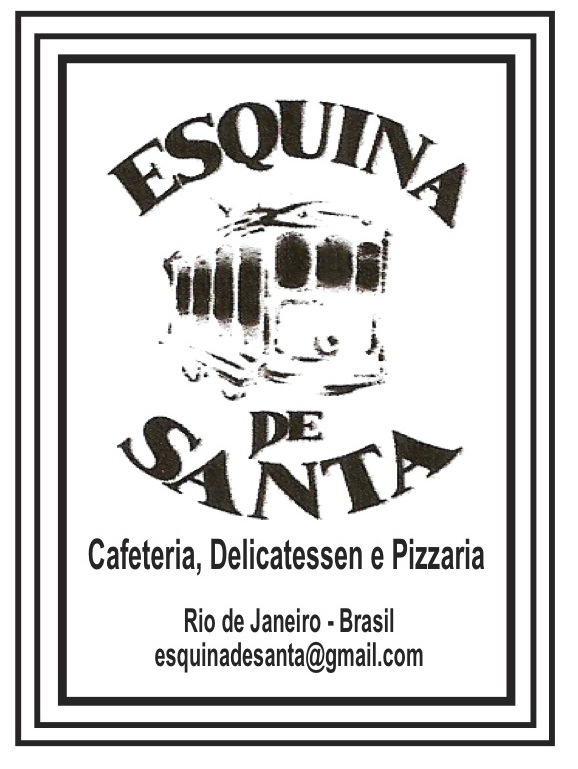


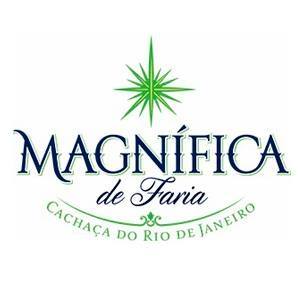
Festival Hotel in Santa Teresa
Media Partner



International Supporter

 This year, 2025, marks the 80th anniversary of the first nuclear explosion in New Mexico and the subsequent nuclear annihilation of Hiroshima and Nagasaki by two US atomic bombs. And the nuclear threat continues with more than 12,000 nuclear weapons held by nine countries.
This year, 2025, marks the 80th anniversary of the first nuclear explosion in New Mexico and the subsequent nuclear annihilation of Hiroshima and Nagasaki by two US atomic bombs. And the nuclear threat continues with more than 12,000 nuclear weapons held by nine countries. 



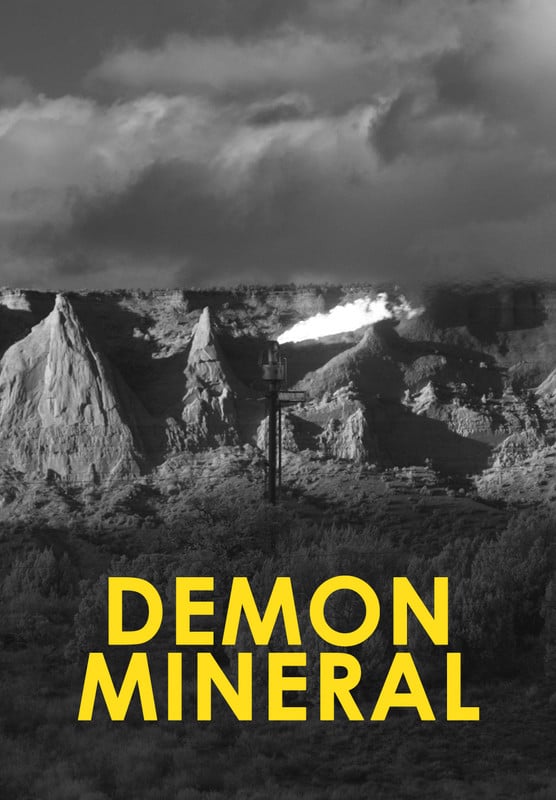 Demon Mineral
Demon Mineral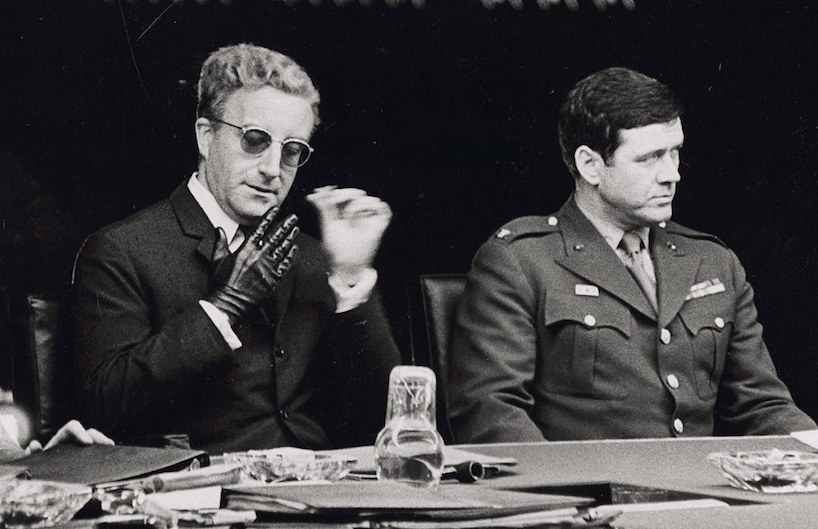 Dr. Strangelove or: how I learned to stop worrying and love the bomb (Dr. Fantástico)
Dr. Strangelove or: how I learned to stop worrying and love the bomb (Dr. Fantástico) 
 Half-Life of Memory: America's Forgotten Atomic Bomb Factory
Half-Life of Memory: America's Forgotten Atomic Bomb Factory



 Object 817
Object 817 
 Sand Storm. The Sahara of the Nuclear Tests
Sand Storm. The Sahara of the Nuclear Tests 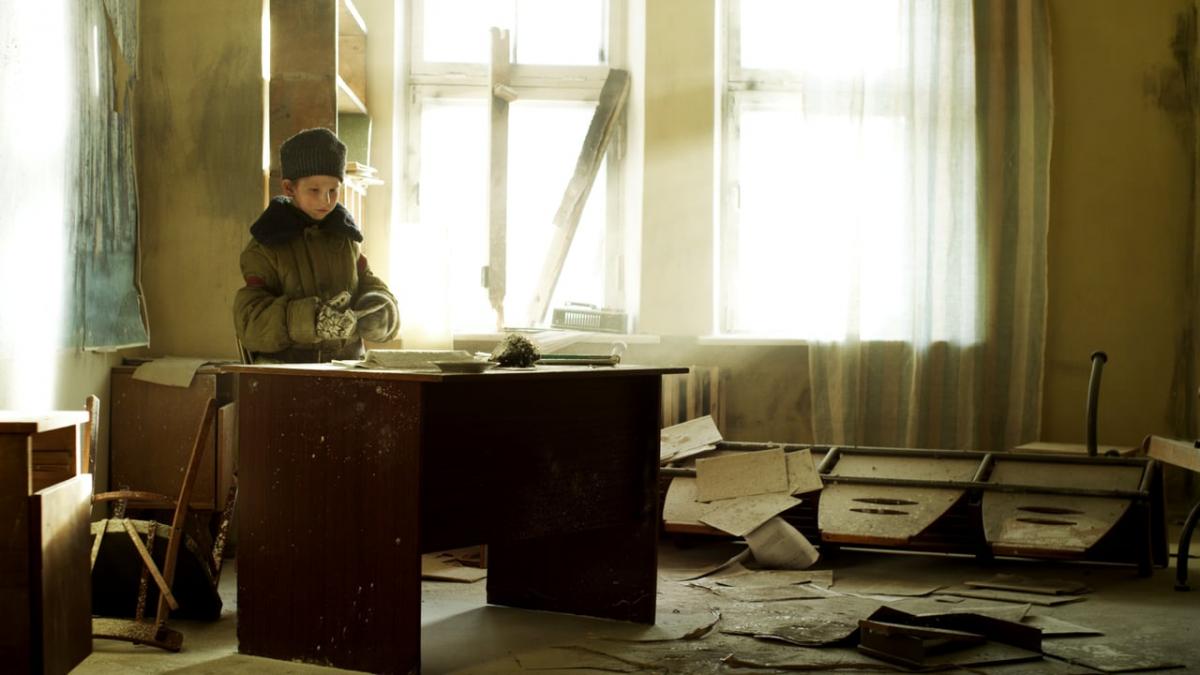 Seven Years of Winter
Seven Years of Winter Taiwaste
Taiwaste Tempest: Peter Roche and the Nuclear Uncanny
Tempest: Peter Roche and the Nuclear Uncanny The Accelerator
The Accelerator The Atomic Bowl: Football at Ground Zero - and Nuclear Peril Today
The Atomic Bowl: Football at Ground Zero - and Nuclear Peril Today  The Conqueror: Hollywood Fallout
The Conqueror: Hollywood Fallout The Man Who Saved The World
The Man Who Saved The World
 The Time Machine
The Time Machine The View from the Plane
The View from the Plane

 We Live Here
We Live Here



















